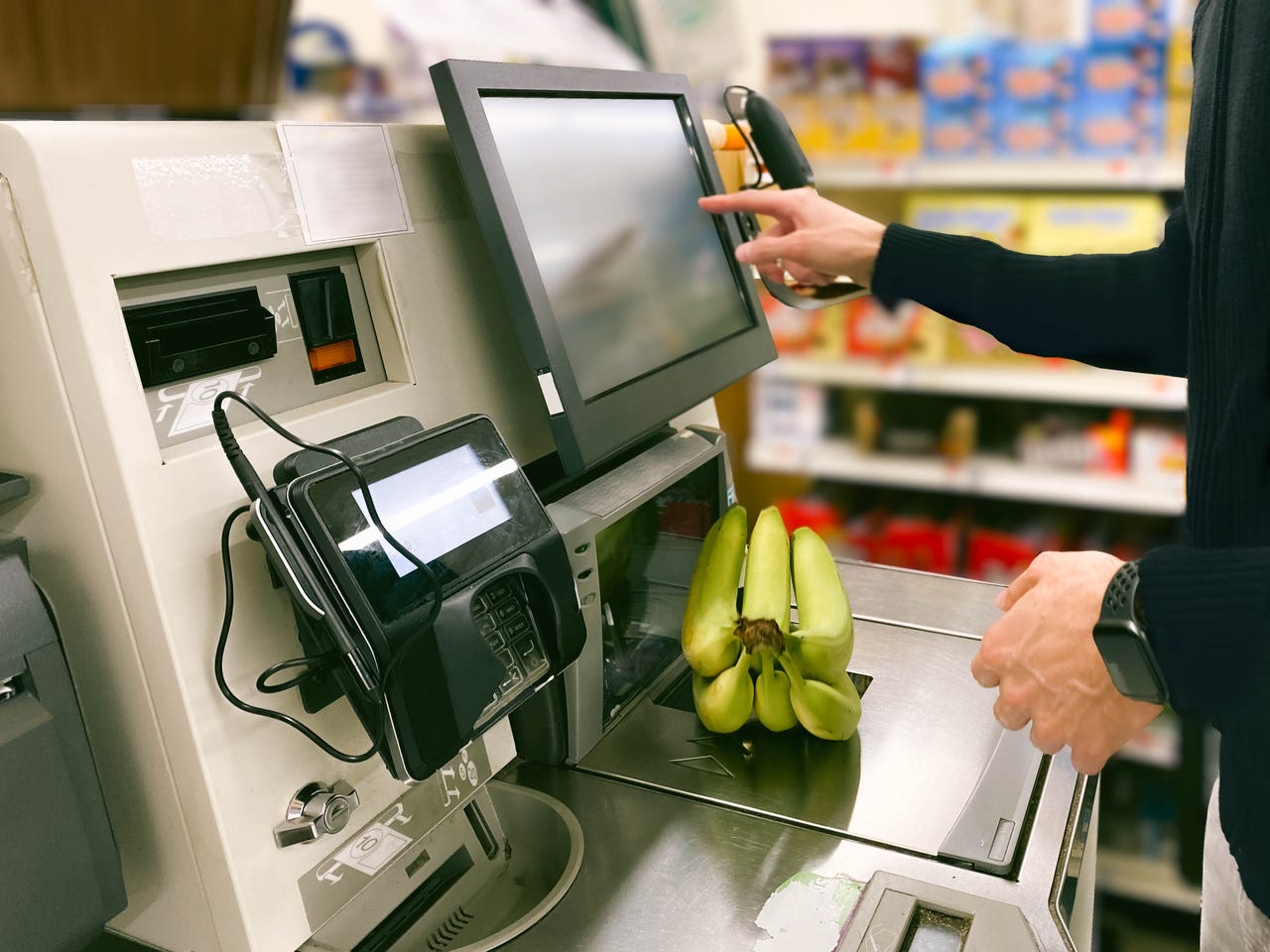
































Carrots.
Grace Cary/Getty ImagesThere are those who always do, those who occasionally do, and those who'll never, ever so much as contemplate such a degrading experience.
No, I'm not talking about attending an Apple launch event. I'm talking about choosing self-checkout over the human kind.
It's become a severely emotive subject, one that causes conniptions among the usually mild-mannered.
Why, some supermarkets are even inserting barriers to prevent shoppers from leaving until they've had their self-checkout receipts inspected.
Also: The No. 1 way AI is changing grocery shopping
But who ever gets the receipt anyway?
Naturally, I seek solutions to the world's problems, so I was moved to a heightened frenzy by this statement: "New Vynamic Smart Vision POS solution built on SeeWare distributed machine learning simplifies in-store checkout for frictionless, accurate, self-service transactions."
Look at all those words. Aren't you pulsating at the idea of, um, a frictionless shopping life brought to you by smart vision and machine learning?
Please, therefore, allow me to translate a little. There's a big deal here. Well, a big deal for everyone who gets heartily annoyed whenever they use self-checkout machines.
You see, this is the story of a company called SeeChange Technologies partnering with Diebold Nixdorf -- half of which name you may know -- to create, please wait for it, Fresh Produce Recognition.
Also: What is ChatGPT and why does it matter? Everything you need to know
I capitalize it because they do. Because they're just so excited at the idea that a machine will soon be able to distinguish between an apple and a banana. Something that you managed quite well shortly after being born.
Still, the fine technological makers here realize that you can get annoyed when the self-checkout demands that you push the right button for the fruit you're buying -- wait, did you pick up organic or the other kind?
To quote these two companies: "Using the artificial intelligence in SeeWare, SeeChange's edge-to-cloud AI platform, Diebold Nixdorf has enabled the integrated application of machine learning to recognize products, reducing friction at self-checkout for an improved buyer experience."
You see? Now you won't have to do quite as much of the cashier's job that the supermarket isn't paying you to do. Because supermarkets want you to be happy doing the cashier's job that the supermarket isn't paying you to do.
Hark at Matt Redwood, vice president of Retail Technology Solutions at Diebold Nixdorf: "More and more retailers are looking for efficient solutions that reduce friction points, improve the experience for the consumer and drive greater checkout efficiency. The difficulty comes when doing this while also keeping solutions open and flexible to anticipate future changes. SeeChange exactly meets our solution philosophy of Modularity, Openness, and Availability, an approach which enables agility and flexibility when innovating."
Have you ever seen so many buzzwords in one quote? I mean, modularity, agility, availability, and flexibility in the same sentence? That's how smooth Fresh Produce Recognition will surely be.
Also: AI improves field service quality and customer experience
I asked SeeChange which retailers might be tempted to enjoy this fine new technology. The company's CEO, Jason Souloglou, told me: "Trials are expected to be complete by Q1 and deployed within US retailers in Q2 this year."
Which leaves you only one more problem with self-checkout: Will this new technology be able to distinguish between organic and the other kind?
"When organic products are marked with stickers or other physical differentiators, or if organic products are physically different to their non-organic variants, the system is trained to distinguish between organic and non-organic products," said Souloglou.
Yes, but what if there's no physical difference?
"If there are no physical differentiators where a human couldn't tell the difference, then obviously the system can't differentiate," Souloglou admitted. "In this case, all variants of non-distinguishable items are presented to the shopper to choose which applies."
Also: How to cut your grocery bill by shopping online
He insists this is still an improvement on today's woeful ways: "This case still provides a good experience for the shopper by removing the 'look up item' process, and for the retailer it provides an opportunity to create targeted analytics around organic variants and even audit a selection of these cases in real-time if they choose."
You may be tempted to now believe this is modular, agile flexibility.
Me, I'll believe it when I see it. Or, rather, when someone talks me into using self-checkout at all.
 Hot Tags :
Innovation
Hot Tags :
Innovation